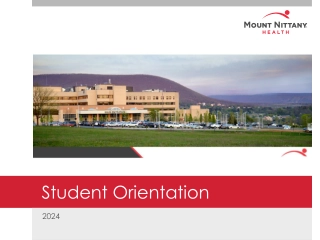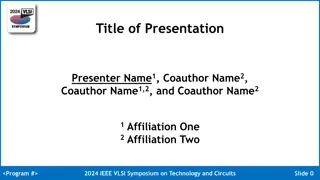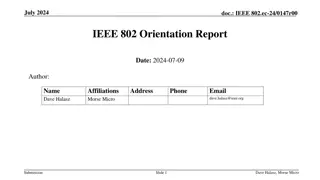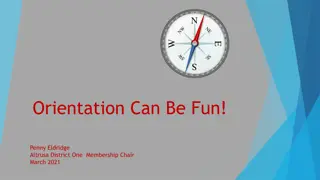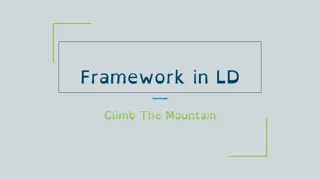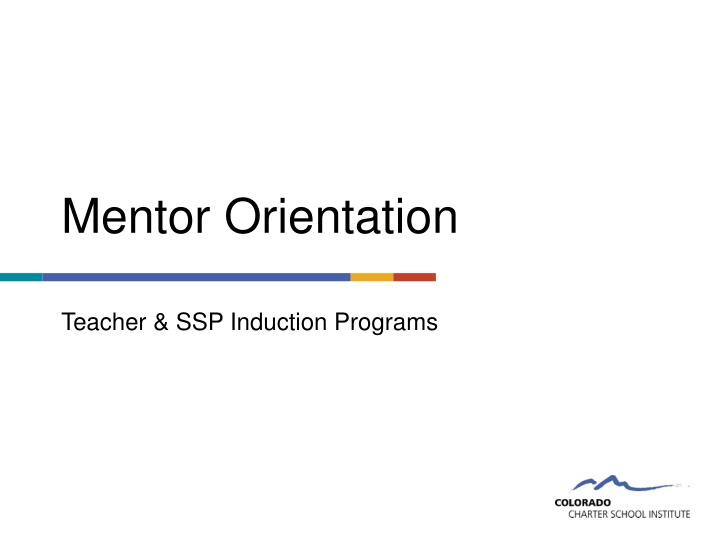
Empowering Educators Through Mentorship and Induction Programs
Enhance educator development with targeted training, mentor support, and professional growth strategies. Explore the importance of mentorship in different phases of teaching. Learn the characteristics of a high-performance mentor teacher for successful outcomes in education.
Download Presentation

Please find below an Image/Link to download the presentation.
The content on the website is provided AS IS for your information and personal use only. It may not be sold, licensed, or shared on other websites without obtaining consent from the author. If you encounter any issues during the download, it is possible that the publisher has removed the file from their server.
You are allowed to download the files provided on this website for personal or commercial use, subject to the condition that they are used lawfully. All files are the property of their respective owners.
The content on the website is provided AS IS for your information and personal use only. It may not be sold, licensed, or shared on other websites without obtaining consent from the author.
E N D
Presentation Transcript
Mentor Orientation Teacher & SSP Induction Programs
Welcome & Introductions In the chat: Name School Role Years in education Favorite part of teaching
24-25 Induction Program Calendar New Option: Mentor Gathering Quarterly
Induction Programs provide Targeted training for the educator s stage of professional development Support of a mentor or coach Vehicle to convert a Colorado Initial License to a Professional License Strategy for educator retention
Program Components SCHOOL BASED PROFESSIONAL DEVELOPMENT ONLINE PORTFOLIO AND REFLECTION MENTOR SUPPORT
30 Hours of Mentorship Regular meetings/conferencing Observation with pre- and post- conference Arrange for a Model Classroom Observation with pre- and post- conference
First Year Phases (Moir, 1999)h
Competency Spectrum Unconsciously Incompetent Consciously Incompetent Unconsciously Competent Consciously Competent
High-Performance Mentor Teacher HIGH-PERFORMANCE MENTOR TEACHER Commits to the Roles and Responsibilities of Mentoring Accepts the Beginning Teacher as a Developing Person and Professional Reflects on Interpersonal Communication and Decisions Serves as an Instruction Coach Models a Commitment to Personal and Professional Growth Communicates Hope and Optimism for the Future Rowley,J. (2009) The High Performance Mentor
Tips for Success Responsibilities Ground rules Build the Relationship Confidentiality Boundaries Ask open-ended questions Have conversations that make mentees think Avoid giving advice (until the appropriate time) Make sure there is movement and accountability for movement Ask Set goals Reflect Move
Expectations A Mentor is teacher friend guide coach role model Co-learner A Mentor is not administrator supervisor evaluator Spy Reporter Learning-Focused Relationship (Mentoring Matters, Lipton & Wellman, 2018)
We know that people learn best when they learn from and support each other in a learning community. Annette Breaux and Harry K Wong New Teacher Induction
Quick Check (click on the link) 1. What are the three main components of induction? 2. What is the topic for January work session/submission? 3. Who has the option to attend the monthly work sessions? 4. What is the platform for the online modules & assignment submissions? 5. What are the types of observations required? 6. Please rate this training 1 to 10 (1 poor to 10 exceptional) 7. Please share suggestions for improvement.
Option 1: Online Portfolio & Reflection Google classroom Video content Colorado Educator Quality Standards Colorado Model Evaluation System CSI and Charter Schools Assignments allow inductees to demonstrate competency in implementing the Standards in their professional practice Artifacts Reflections
Options 2: Monthly Work Sessions Topic Based Quest Speaker (first 10 min) when applicable One hour based on feedback from 23-24 inductees (new this year) Break Out groups for subject/grade level engagement Discuss the topic, share artifacts, and reflect on content Record attendance at the work session in the google classroom. 4 assignments (2 observations, beginning self-evaluation and ending reflection) require submission
Suggested Topics August Nov. Dec. School Orientation Curriculum Teacher Evaluation Process Instructional Strategies TeamingStructures Classroom Routines ParentCommunication Sep. Oct.
Suggested Topics January-February May Assessment & Use of Data Goal Setting for Next Year Diverse Learners Leadership Opportunities Self-Evaluation Reflection March-April
Definitions Quality Standard: the professional practice or focus on student academic growth needed to achieve effectiveness as a teacher/ssp. 4 Element: the detailed descriptions of knowledge and skills that contribute to effective teaching/service provision which correspond to a particular Quality Standard. 17
Educator Quality Standards Shared understanding of the essentials of great teaching Knowledge and skills Tool for self-reflection, goal setting and ongoing professional growth Foundation for the Colorado Model Evaluation Process
Teacher Quality Standards I. Teachers demonstrate mastery of and pedagogical expertise in the content they teach. Elementary: expert in literacy and mathematics and knowledgeable in all other content areas of assignment Secondary: knowledge of literacy and mathematics and an expert in the content areas Teachers establish a safe, inclusive and respectful learning environment for a diverse population of students. Teachers plan and deliver effective instruction and create an environment that facilitates learning for their students. IV. Teachers demonstrate professionalism through ethical conduct, reflection, and leadership. II. III.
Specialized Services Provider Quality Standards I. SSPs demonstrate mastery of and expertise in the domain for which they are responsible. II. SSPs support and/or establish safe, inclusive, and respectful learning environments for a diverse population of students. III. SSPs plan and deliver effective services in an environment that facilitates learning for their students. IV. SSPs demonstrate professionalism through ethical conduct, reflection, and leadership.
Online Assignments Reflection 1-3 paragraphs Connection to elements Snapshot of professional practice Rubric 14
Thank You! Any questions? Thoughts? Any questions? Thoughts? Quick Check/Feedback Survey Quick Check/Feedback Survey Contact me at: willynwebb@csi.state.co.us


